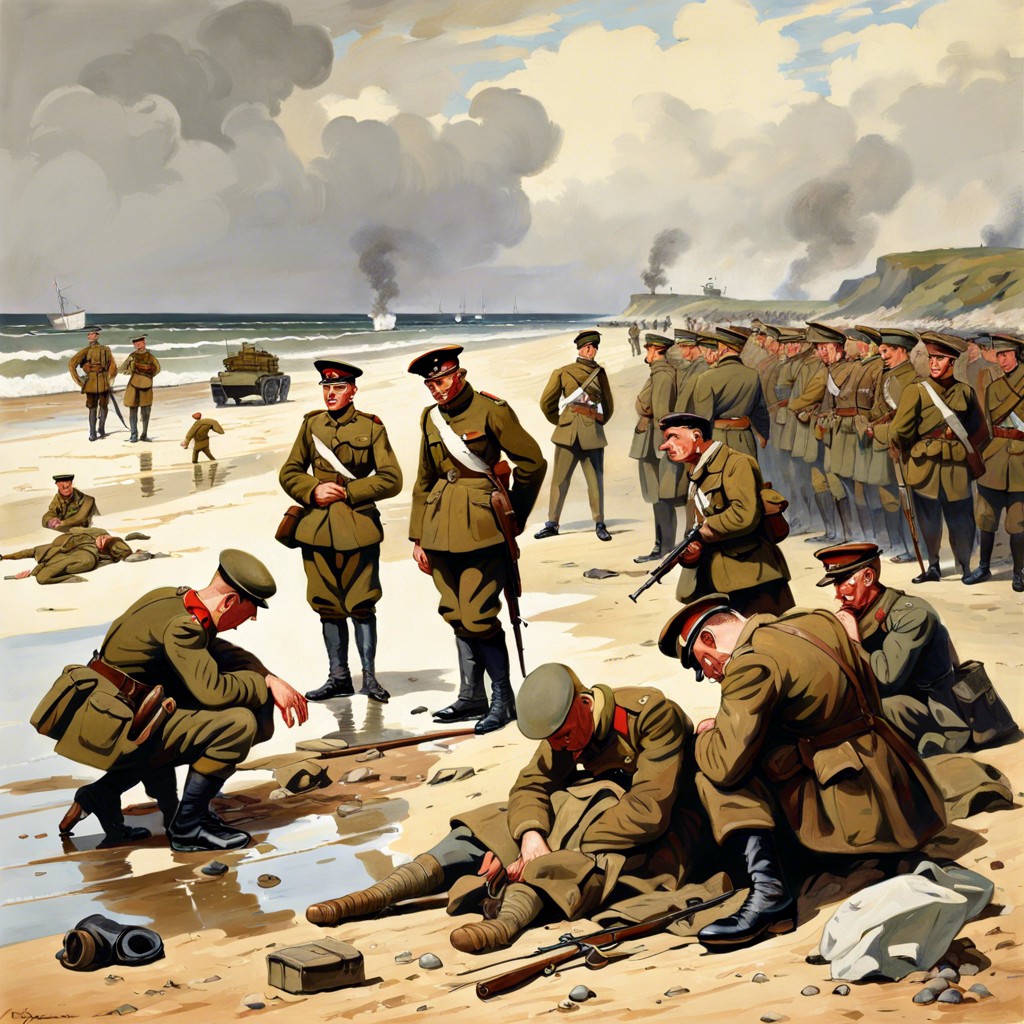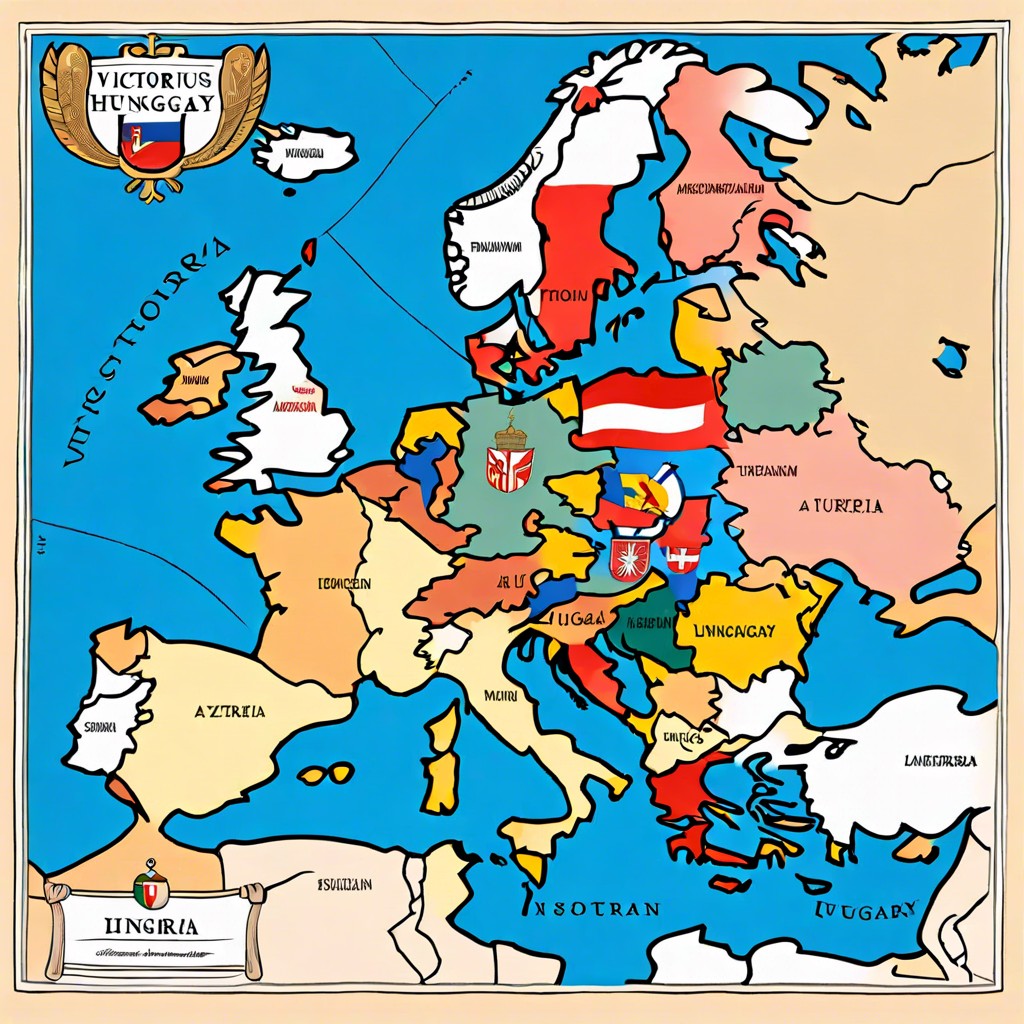Imagine how the world might look today if the pivotal evacuation at Dunkirk had ended in complete disaster, altering the course of World War II.
Imagine a world where the Dunkirk evacuation flopped like a bad soufflé. British morale cratered, Churchill quaked, and military minds scrambled for Plan B. WWII’s timeline unraveled faster than a cheap sweater. European resistance? Pressured like a wine cork in a volcano. And the post-war map? Redrawn like a toddler’s crayon masterpiece. Dive into this alternate history for a blend of “what-ifs” and seismic geopolitical shifts.
Key takeaways:
- Dunkirk failure would crush British morale and stability.
- Military strategy would become defensive and chaotic.
- Timeline and outcomes of WWII would drastically shift.
- European resistance movements would struggle for resources.
- Post-war dynamics would favor U.S. influence and Soviet expansion.
Impact On British Morale and Political Stability

Churchill without his V for Victory? That’s what we’d be looking at. Let’s paint a picture: morale would have taken a nosedive straight into the English Channel. The British people, already reeling from bombardments, would have faced the crushing news that their beloved Tommies didn’t make it back.
Political stability? Imagine trying to herd cats with a vacuum cleaner. Leaders would scramble to reassure the public, but whispering campaigns and cabinet reshuffles would be rampant. Public confidence in the government would be shakier than jelly on a rollercoaster.
Churchill himself could’ve become a scapegoat faster than you can say Blitzkrieg, potentially losing his position to someone advocating for peace negotiations. Yes, peace with a capital P and maybe a side of crumpets, an unthinkable option given the circumstances but not entirely off the table. The national psyche would have been all but bruised, making any subsequent efforts to boost wartime productivity like trying to boil the ocean.
Changes in Military Strategy and Alliance Formation
If Dunkirk had failed, military strategy would have been shuffled like a deck of cards in a windstorm. First off, Britain might have adopted a more defensive stance, focusing on fortifying the home island. Imagine Churchill swapping his cigar for a bunker blueprint.
With the British army decimated, the U.S. would likely accelerate its support, leaning into a more active role long before Pearl Harbor. Picture Uncle Sam suiting up earlier than a Marvel movie spinoff.
Forget about the clear-cut alliances we studied in history class. Countries like Spain or Turkey, previously sitting on the sidelines, might throw their hats into the ring sooner—hopefully without too much juggling.
Without the solid Anglo-French front, Nazi Germany might have turned its gaze eastward even quicker. Poor Russia, caught in the crossfire sooner than expected, would scramble to adjust its plans. Stalin might’ve had a few more sleepless nights.
Chaos, fast-pivoting strategies, and unexpected team-ups would define the new wartime rhythm. No one likes dancing to a frenzied beat, but hey, it keeps life interesting.
Potential Shifts in the Timeline and Outcome of World War II
Imagine the Allies’ timeline as a mix tape with some wildly unexpected remixes. The failure at Dunkirk could’ve delayed the Normandy invasion—not just a few months, but perhaps years. No heroic “D-Day” movie marathons then!
Britain, battered and bruised, might’ve bunkered down, focusing inward rather than outward. This could’ve meant less support for the Soviet front. Stalin, naturally, would be less jolly at dinner parties.
The U.S., strapping on the cape a bit later, might’ve reconsidered their focus. Japan might’ve gotten more heat early on, turning the Pacific Theater into the opening act rather than the encore.
And let’s not forget the Axis powers. Cocky from their win, they could’ve tightened their grip on Europe, turning those after-work pub celebrations into relentless goose-stepping parades.
Long-term Effects On European Resistance Movements
Imagine a world where Dunkirk didn’t succeed. European resistance movements face an uphill battle, and that’s putting it mildly. Let’s break it down.
First, the psychological blow. Without the “Dunkirk Spirit,” morale would have been rock-bottom. Not a good start for underground fighters.
Next, resources. A successful Dunkirk means more soldiers, supplies, and hope flowing through resistance channels. Failure strips that away, leaving resistance groups high and dry.
Coordination takes a hit too. Unified command from Britain helps organize efforts. No Dunkirk success? Expect disarray and disorganization like herding cats.
Recruitment falters. The heroic escape at Dunkirk spurs many to join the fight. A failure leads to muted inspiration and fewer boots on the ground.
Lastly, international support. Allies, seeing a Europe without hope, could be less motivated to pour in aid. Resistance movements might end up like a rock band’s farewell tour—underfunded and underwhelming.
So, the impact would be massive. Resistance could still exist, but with a lot more headaches and heartaches.
Influence On Post-war Geopolitical Dynamics
A failed Dunkirk would have redrawn the post-war geopolitical map with all the finesse of a toddler with a crayon. The UK might have staggered like a boxer on the ropes, forcing the U.S. to step in sooner with more vigor.
France, under prolonged occupation, could’ve seen deeper cultural and political shifts towards collaborationism, making the post-war Franco-German relationship even trickier.
Without a strong British opposition, the Soviet Union could’ve flexed its muscles more, leading to an Iron Curtain that stretches further West. Western Europe might have leaned more heavily on the U.S., resulting in even stronger American influence and possibly an earlier onset of the Cold War.
Decolonization would have sped up – or crashed spectacularly – as a weakened UK and France struggled to hold on. Newly independent nations might have found themselves balancing on a precarious tightrope between Soviet and American interests.




